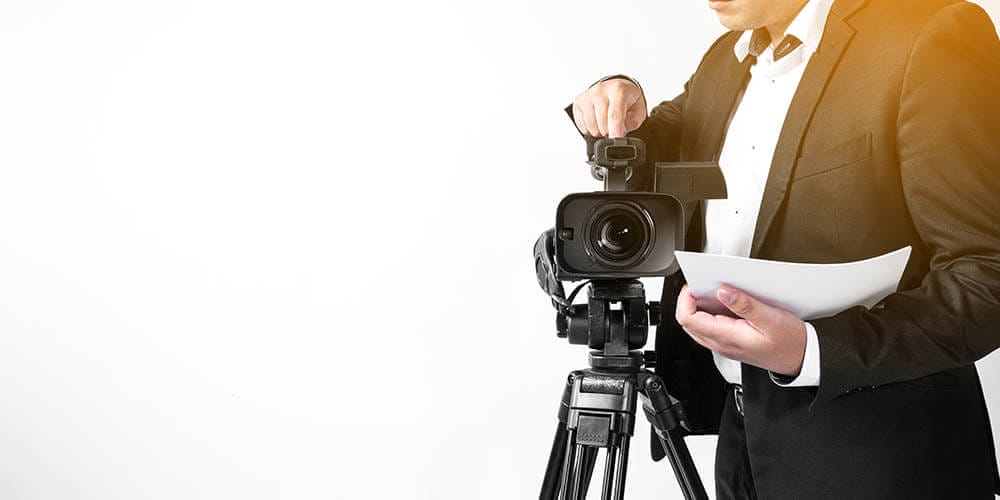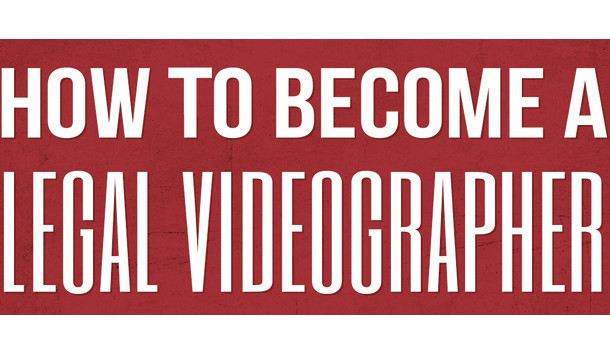Legal Videography: A Comprehensive Guide to Recording Depositions
Legal Videography: A Comprehensive Guide to Recording Depositions
Blog Article
Important Aspects of Legal Videography for Efficient Documentation
Legal videography plays a crucial duty in the paperwork of essential occasions within the justice system, where accuracy and quality are critical. Key elements such as the implementation of high-def cameras, adherence to legal criteria, and efficient location scouting dramatically influence the quality and reliability of the footage. A videographer's professionalism and reliability and focus to information can greatly enhance the evidentiary worth of the taped product. Legal Videography. As we discover these vital components, it becomes obvious that the nuances of this method can have far-ranging implications for lawful outcomes. What might those implications involve?
Value of Legal Videography
Legal videography plays an essential function in the judicial procedure by supplying a trustworthy aesthetic document of testaments, depositions, and various other substantial occasions. This visual documents serves several important features, most notably improving the credibility of proof offered in court. Unlike written transcripts, video recordings capture non-verbal cues, such as body language and emotional responses, which can dramatically influence a jury's understanding of a witness's integrity and reliability.
In addition, lawful videography aids in preserving the stability of intricate cases, making certain that nuances are properly represented. This ends up being particularly crucial in cases involving expert statement, where visual aids can elucidate detailed principles that might be testing to share with message alone.
In addition, making use of videography can improve trial proceedings. By allowing jurors to view recordings rather than depending entirely on online testimony, the procedure can become much more efficient and less prone to misinterpretation.
Technical Requirements
To successfully record high-quality video clip in a legal setting, particular technological demands need to be satisfied. Firstly, the option of video camera is critical; it should have high-definition capabilities, ideally 1080p or higher, to make sure quality in visual documentation. In addition, the camera needs to have a trusted zoom feature to record details from numerous ranges without endangering picture quality.
Illumination is an additional critical facet. Natural light is chosen, however extra illumination might be required to eliminate shadows and make sure all participants are adequately lit up (Legal Videography). Soft, diffused illumination can assist create a professional look while avoiding severe contrasts

Lastly, stable recording tools is essential. A tripod or other stablizing equipment ought to be utilized to prevent shaky video footage, which might interfere with the professionalism of the documentation. Fulfilling these technological demands will considerably improve the high quality and efficiency of legal videography.
Compliance and Lawful Standards
In the world of lawful videography, adherence to compliance and legal requirements is vital to ensure the integrity and admissibility of taped materials in court proceedings. Legal videographers should be fluent in the appropriate regulations and guidelines controling the documentation of evidence. This includes recognizing the policies of evidence, which determine just how video clip recordings can be made use of in court, as well as personal privacy legislations that protect the legal rights of people caught on video.
Furthermore, videographers should get correct authorization from all events involved in the recording process. This not just fosters openness but also safeguards against possible legal repercussions. Conformity with state-specific regulations is just as crucial, as the lawful landscape differs considerably throughout jurisdictions.
Additionally, keeping high criteria of technical quality is essential, as bad sound or visual quality can result in obstacles relating to the reputation of the video footage. Videographers ought to additionally see this here maintain precise records of the chain of custodianship for all video materials, ensuring that they can demonstrate the credibility and integrity of the recordings if examined in court. Fundamentally, compliance with lawful standards develops the structure of effective and trusted lawful videography.
Best Practices for Videographers
Complying with compliance and legal standards establishes a solid foundation for reliable legal videography, however best practices better enhance the high quality and integrity of recorded materials. To start with, videographers need to use top quality devices, consisting of cams with sufficient resolution and audio catching devices that minimize history sound. This guarantees clearness in both acoustic and aesthetic aspects, which is crucial for legal documentation.
Secondly, appropriate lights is important to avoid shadows or too much exposure, thereby maintaining the integrity of the video. Videographers should search the area beforehand to establish optimal lights problems, changing as essential.
Additionally, careful framing and composition are important. Subjects should be focused within the structure, and any kind of appropriate materials or exhibits need to be plainly visible. This not only help in quality however also aids in sharing context throughout legal process.
In addition, keeping a neutral click this site disposition and avoiding individual prejudices while taping improves the professionalism and trust of the videographer. Attention to detail in modifying, consisting of smooth changes and clear labeling of files, ensures that the final product is not only sleek yet additionally simple to navigate for lawful teams. Sticking to these best methods ultimately supports the objectives of lawful documentation.
Enhancing Evidentiary Worth
Enhancing the evidentiary value of legal videography calls for a strategic strategy that prioritizes both credibility and quality. Legal videographers have to guarantee that the video clip documentation precisely mirrors the problems, occasions, or testimonies being recorded. This starts with the choice of premium equipment that records clear audio and visual components, reducing distortion or disturbance that might undermine trustworthiness.
Additionally, thorough interest to information is paramount. Videographers need to establish a steady electronic camera position, make use of proper illumination, and prevent any type of unneeded edits that can be perceived as altering the original material. Preserving a neutral point of view throughout recording assists protect the credibility of the evidence.
Furthermore, proper documents of the recording procedure-- including date, time, location, and any view publisher site type of appropriate contextual info-- can substantially boost the evidentiary weight of the video clip. This metadata acts as an important recommendation point for authenticity.

Conclusion

Legal videography plays a critical duty in the documents of critical occasions within the justice system, where accuracy and clarity are extremely important.In the world of legal videography, adherence to compliance and lawful standards is critical to guarantee the integrity and admissibility of documented products in court process. Legal Videography. In significance, conformity with lawful requirements forms the structure of reputable and reliable legal videography
Sticking to conformity and legal standards establishes a strong foundation for reliable legal videography, however best techniques even more improve the high quality and integrity of recorded products.In conclusion, the value of lawful videography exists in its ability to offer clear, dependable documentation for legal process.
Report this page